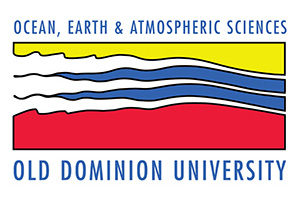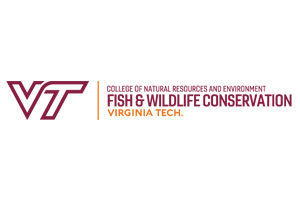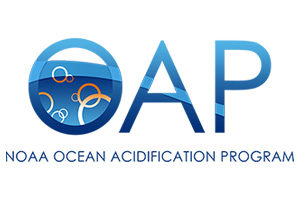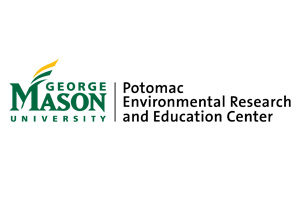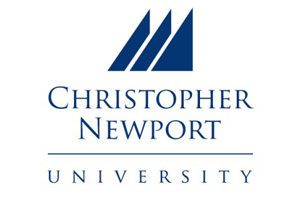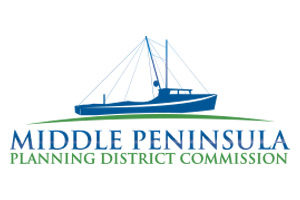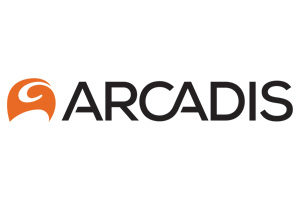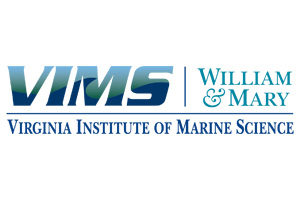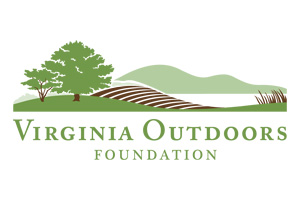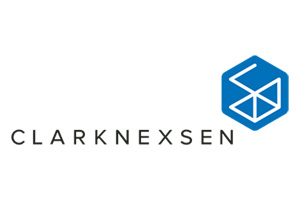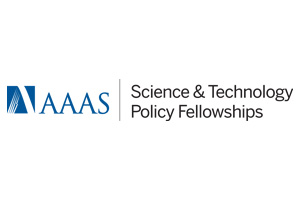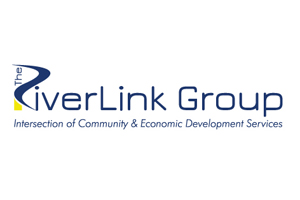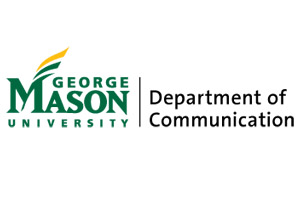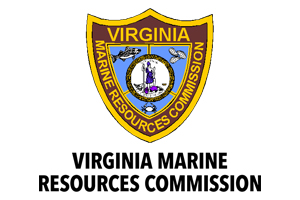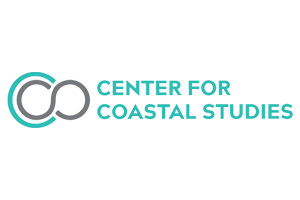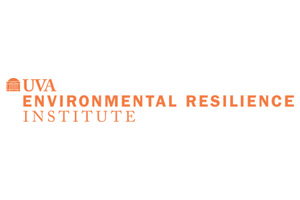concurrent sessions: Workshops & panels
CURRENTLY SCHEDULED
CONCURRENT SESSION 1
CROSS-DISCIPLINARY TEAM BUILDING | SCIENCE COMMUNICATION
BALLROOM
ALDA METHOD® FOR TEAM SCIENCE
Effective communication in science teams requires flexibility, adaptiveness, and leadership skills and experiences. These higher order competencies sit a level above the technical communication skills that are often associated with team communication. Using an experiential approach, learn how to address a variety of scenarios faced in trans- or interdisciplinary science teams. This workshop is 3-hours long and limited to 20 participants on a first-come basis. Pre-enrollment is required. You must be registered for the symposium to pre-enroll. Symposium registrants will be contacted by email shortly after completing the registration process for the opportunity to enroll in this workshop.
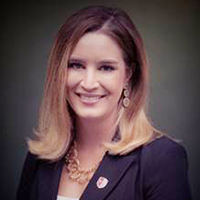
Dr. Brenda MacArthur, Assistant Professor of Practice, Alan Alda Center for Communicating Science, Stony Brook University
In addition to her work as an Alda-certified facilitator and background in communication, health care and curriculum design and assessment, Brenda MacArthur's’s social science research into communication helps develop and continuously improve the Alda Center’s workshops. She is dedicated to discovery of knowledge, and enjoys working at the Alda Center because of the team’s commitment to sharing information, and empowering others to do the same. As a communication researcher, her work explores topics such as health literacy, organizational socialization, team science, patient adherence, and communication motives. MacArthur holds a doctoral degree in health communication from George Mason University.
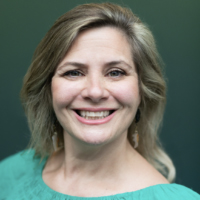
Lydia Franco-Hodges, Improvisation Lecturer, Alan Alda Center for Communicating Science, Stony Brook University
Lydia Franco-Hodges leads workshops for scientists throughout the country and world, helping them to build their communication skills through improvisation and other theater practices. As a member of the Alda Center’s creative team, Lydia designs new curricula and teaches graduate courses at Stony Brook University. She previously taught acting, movement, and performance at Stony Brook, and her wealth of experience as an actor and theater-maker informs her work as an Alda-certified instructor. Communication has always been central to Franco-Hodges' career, and the importance of forging connections between STEM and medical professionals and others inspires her every day.
SCIENCE EDUCATION
SPOTSYLVANIA ROOM
CHARTING THE SEAS OF K-12 EDUCATION
Want your research to inspire the next generation of scientists? Learn how to transform technical research projects into lesson plans and outreach activities. Educators from the Virginia Scientists and Educators Alliance (VA SEA), a network of graduate students, teachers, and informal educators, will share examples and tips for translating scientific research to improve K-12 education.
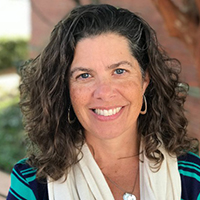
Lisa Ayers Lawrence, Marine Education Program Leader, Virginia Institute of Marine Science
Lisa Lawrence is the Marine Education Program Leader for VIMS Marine Advisory Program and Virginia Sea Grant. With 20 years of experience incorporating authentic scientific data into classroom resources and teacher professional development, she helps both veteran researchers and early career scientists design and implement broader impact projects targeting the K-12 community. Lisa also works closely with graduate students in VA SEA and VIMS Graduate GK-12 projects, providing them with training and guidance to help them communicate their research to GK-12 audiences.
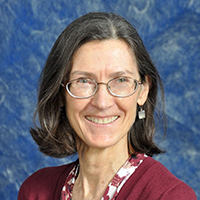
Dr. Carol Hopper-Brill, Marine Educational Specialist, Virginia Institute of Marine Science
Hopper-Brill holds a Ph.D. in Marine Zoology from the University of Hawai‘i-Mānoa and has more than 30 years of experience interpreting marine science for audiences in both informal and formal education contexts. Carol has served as a marine science education specialist with the Marine Advisory Program since 2005 helping VIMS graduate students translate their research into teaching resources (NSF Graduate K-12, VA SEA), contributing to professional development opportunities for classroom teachers, providing marine science academic opportunities for students (Blue Crab Bowl), and contributing to the marine education community through service to professional and advisory entities.
RESEARCH
BRUNSWICK ROOM
OCEAN ACIDIFICATION IN THE MID-ATLANTIC
Ocean acidification poses a serious threat to the nation’s marine economy, communities, and environment, but each region will face unique challenges. This session will serve as an introduction to current research being conducted by the Mid-Atlantic region from Ocean Acidification Graduate Research Fellows.
Session Co-Chairs:
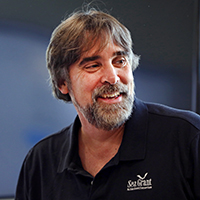
Dr. Peter Rowe, Acting Executive Director, New Jersey Sea Grant Consortium
Dr. Peter M. Rowe is currently the Acting Executive Director at the New Jersey Sea Grant Consortium located at Sandy Hook. Dr. Rowe has been employed at the Consortium since 2004 and is also the Director of Research and Extension. The Consortium is an affiliation of colleges, universities and other groups, dedicated to advancing knowledge and stewardship of New Jersey’s marine and coastal environment and meets its mission through innovative research, education and extension programs. Previously, Dr. Rowe held postdoctoral fellowships at Rutgers University Marine Field Station and Laval University in Quebec. He has held visiting faculty positions at Richard Stockton University and Shippensburg University and adjunct faculty positions at Towson University and Dundalk Community College teaching courses in marine, ecological, biological, and environmental sciences. His expertise is in the early life history of marine organisms and coastal oceanography. Dr. Rowe contributes to the Sea Grant network, both regionally and nationally, as a member of the Extension Assembly and the Research Coordinators Network, and as a network liaison for the Program Mission Committee of the Sea Grant Association. He is a member of several boards and committees including those at the Barnegat Bay Partnership and the Partnership for the Delaware Estuary. Dr. Rowe received his Ph.D. in Oceanography and M.S. in Marine Studies from the University of Delaware College of Earth Ocean and Environment. He earned his B.A. in Biology and Chemistry from Gettysburg College.
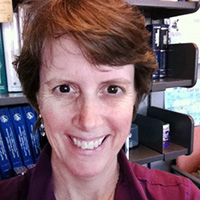
Dr. Libby Jewett, Director, NOAA Ocean Acidification Program
Dr. Jewett became the founding Director of the NOAA Ocean Acidification Program in May 2011, and has been busy ever since building, organizing and steering the NOAA OAP enterprise. She chairs the Ocean Acidification Interagency Working Group (under the Subcommittee on Ocean Science and Technology) where she helped develop an ocean acidification strategic research plan for the nation. She also co-founded the Global Ocean Acidification Observing Network. Prior to becoming Director, she directed the only two national competitive hypoxia research funding programs as program manager for the Center for Sponsored Coastal Ocean Research in NOAA's National Ocean Service. Jewett earned a Ph.D. in Biology with a focus on Marine Ecology at the University of Maryland, a Master of Public Policy at Harvard University's Kennedy School of Government, and a B.A. at Yale University.
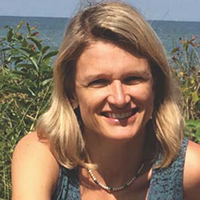
Dr. Marjorie Friedrichs, Research Professor, Virginia Institute of Marine Science
Marjy Friedrichs obtained her M.S. from the MIT-WHOI joint program and her Ph.D. from Old Dominion University and is currently a professor at the Virginia Institute of Marine Science at William & Mary. Her research focuses on quantifying the historical and future impacts of climate and land-use changes, as well as population growth, urbanization, and local management efforts, on hypoxia, acidification, and biogeochemistry in coastal and estuarine systems. She has developed the Chesapeake Bay Environmental Forecast System that provides short-term forecasts of acidification metrics, temperature, salinity and oxygen for oyster aquaculture hatchery operators and growers, as well for fishermen and charter boat captains (www.vims.edu/hypoxia). In addition she uses these models to study long-term interdecadal changes in acidification and hypoxia in the Bay, which are being caused by a combination of anthropogenic changes in nitrogen and carbon inputs to the Bay and changes in global air temperature and CO2 concentrations.
Presentations:
“Primary stressors impacting the long-term variability of the Chesapeake Bay carbonate system,” Fei Da, Virginia Institute of Marine Science, William & Mary; Additional Authors: Marjorie Friedrichs, Pierre St-Laurent
“Glider-based observations of seasonal carbonate chemistry dynamics in Mid-Atlantic shellfishery zones,” Liza Wright-Fairbanks, Rutgers University Department of Marine and Coastal Sciences; Additional Authors: Dr. Grace Saba (Rutgers University Department of Marine and Coastal Sciences), Peter Hughes (Atlantic Capes Fisheries), Dr. Baoshan Chen (University of Delaware School of Marine Science and Policy), Dr. Wei-Jun Cai (University of Delaware School of Marine Science and Policy), Dr. Travis Miles (Rutgers University Department of Marine and Coastal Sciences)
“Ocean Acidification and Microbially-Mediated Shell Calcification in the Eastern Oyster, Crassostrea virginica,” Amanda Zahorik, University of Delaware, Biological Sciences; Additional Author(s): Dr. Shawn Polson, Dr. K. Eric Wommack
“Identifying Molecular Markers associated with Resilience to Ocean Acidification in the Eastern Oyster and Northern Quahog,” Caroline Schwaner, School of Marine and Atmospheric Sciences, Stony Brook University; Additional Author(s): Michelle Barbosa, Sarah Farhat, Arnaud Tanguy, Isabelle Boutet, Andrew Griffith, Christopher Gobler, Emmanuelle Pales Espinosa, Bassem Allam
CAREER DEVELOPMENT
CHESTERFIELD ROOM
IN WHAT COMMUNITY CAN I PRACTICE?
An exploration of strategies to continue your academic interests within the workforce.
For those who emerge from training within academia having developed a passion for research, collaboration, and/or an emerging trans-disciplinary area of study, finding means of continuing that work outside higher education can seem like an impossible task. Join us for a discussion between emerging professional Ashley Montgomery, and her academic mentor from Hampton University, associate professor Mason Andrews, as they talk about opportunities for collaboration. Andrews’ experience in creating a successful professional community of practice focusing on adaptation and sea level rise serves as a model for improving trans-disciplinary partnerships. The program is also the focus of a study funded by the National Science Foundation.
This session will review current theories of practice communities within academic design and professional communities of practice, as well as past and future trans-disciplinary efforts within the Coastal Community Design Collaborative. This entertaining discussion will be discursive, anecdotal, and inclusive—seeking ideas and input from program participants.
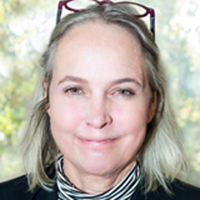
Mason Andrews, Associate Professor, SET - Architecture, Hampton University
Andrews has a wide-ranging career that includes architectural and furniture design, real estate development, writing, and community service. Andrews' current teaching and research interests are several: She seeks to foster an appreciation of design opportunities in the inevitable constraints of contingency and the code, client and community interests inherent in architecture; She hopes to establish a program in Hampton Roads using emerging GIS interfaces for verbal and visual records of buildings in historic urban neighborhoods as an outgrowth of a public education program and as an armature for documenting social history and community conversation. Andrews has Bachelor of Arts degrees in History and English Language & Literature from the University of Virginia, and a Master's of Architecture from Princeton University.
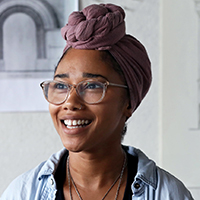
Ashley Montgomery, Associate AIA Designer, Hanbury
Ashley Montgomery, a recent Hampton University Master of Architecture graduate with five years of experience as a land planning and environmental design project manager, has already left her imprint on the coastal communities in Norfolk, VA. Through her involvement and leadership in the Coastal Community Design Collaborative, Ashley and her fellow student colleagues engaged a different neighborhood each year to learn about their unique challenges from sea level rise and create strategies to alleviate them. Ashley applies this awareness of the impacts of climate change to her work—by first seeking to understand the nature and the context of the site and then creating structures that work with their environment and use it to its fullest potential.
CAREER DEVELOPMENT
HANOVER ROOM
SELLING YOUR STEM SKILLS TO EMPLOYERS
STEM expertise is a valuable asset—public and private organizations of all sizes are actively investing in STEM, no matter their core mission. In this session, panelists will share insights about how their organizations identify talent from STEM disciplines and how STEM influences innovation in the workforce. You’ll leave with insight into different work cultures and how you can market your expertise and STEM skillset to organizations with various missions.
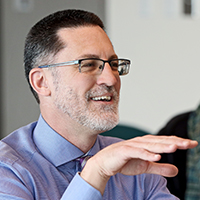
Paul Battaglia, AIA, Principal, Clark Nexsen
With more than 20 years of design experience as both a practitioner and educator, Paul specializes in helping clients clarify, articulate, and realize their vision. His design methodology emphasizes collaboration through discussion, observation, case studies, and best practice expertise. Paul focuses on leveraging this approach to benefit clients by delivering environments that underwrite business objectives and enable them to achieve their goals. His interest in workplace environments, durable and appropriate workplace strategies, and change management has been integral to the development of successful design solutions for national and regional clients. He has a Master's in Architecture from Virginia Tech.
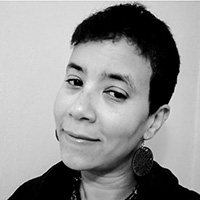
Dr. Tish Robertson, Office of Ecology-Water Quality Standards, Virginia Department of Environmental Quality
Tish Robertson provides technical oversight in the development and implementation of the Commonwealth’s water quality standards—the regulatory provisions that protect surface waters from the harmful effects of pollutants. She has been with the Virginia Department of Environmental Quality since 2007, first serving as the Chesapeake Bay Program Analyst and Water Quality Assessment Coordinator before moving into her current position. Prior to her employment with DEQ, she managed a fish monitoring program in the Florida Everglades supported by the Southeast Environmental Research Center-Florida International University. She holds a Bachelor's in applied biology from the Georgia Institute of Technology and a Ph.D in biology from Rutgers University-Newark, where her doctoral research was focused on the impacts of the invasive grass Phragmites australis on epifauna inhabiting a brackish marsh.
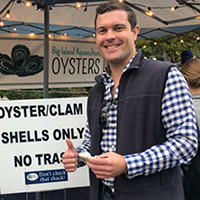
Jeff Flood, Coastal Planner, Virginia Coastal Zone Management Program
Jeff Flood is a Coastal Planner with the Virginia Coastal Zone Management Program in Richmond, Virginia and a volunteer member of the Coastal Society's board of directors. Jeff brings a unique perspective to The Coastal Society on how policy success stories at the local level can help inform state-wide and national initiatives. He works with several state agencies as well as regional and local governments to administer policies that protect coastal resources and foster sustainable development in coastal areas of the Commonwealth. Jeff also provides subject matter expertise on shellfish aquaculture and coastal habitat restoration, acquired from undergraduate internships, graduate research, and his previous position with Wetland Studies and Solutions, an environmental consulting firm in Virginia Beach. Jeff holds a master’s degree in marine policy from the University of Delaware and a B.S. in marine biology from the University of North Carolina-Wilmington.
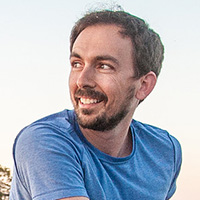
Dr. David Johnson, Assistant Professor, Virginia Institute of Marine Science
David Samuel Johnson is a scientist who cut his ecological teeth in the Arkansas Ozarks chasing crawdads and creek chubs. He graduated the University of Central Arkansas with a B.S. in Environmental Science and Louisiana State University with a Ph.D. in Biological Sciences. He is now an assistant professor at the Virginia Institute of Marine Science of William & Mary where chases fiddler crabs, worms, and grass in salt marshes to understand the impact of global change such as sea-level rise and ocean warming on these ecosystems.
CONCURRENT SESSION 2
SCIENCE EDUCATION
SPOTSYLVANIA ROOM
BRIDGE OCEAN EDUCATION: CREATING NEW LESSON PLANS USING SCIENTIFIC RESEARCH
Roll up your sleeves and practice turning technical data into a user-friendly lesson plan. Using real-time international data sources, participants will walk through the process of building a lesson plan that engages students and introduces them to the scientific method. Participants will also be introduced to the Bridge Ocean Science Education Resource Center, a growing collection of the best marine education materials available online.
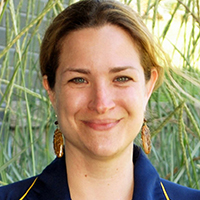
Celia Cackowski, Marine Educational Specialist, Virginia Institute of Marine Science
A biologist by training, Celia Cackowski spent several years in field research before switching gears into public outreach. Over the last decade, she has worked in support of various research programs developing digital media for global audiences, facilitating professional development for K-12 teachers, and collaborating with government agencies to enhance the quality and scope of science education. Cackowski has a B.S. in Marine Biology and has completed graduate studies in marine science and policy at the University of Rhode Island.
RESEARCH
BRUNSWICK ROOM
RESPONDING TO OCEAN ACIDIFICATION
Ocean acidification poses a serious threat to the marine environment and the communities who depend on coastal resources. Panelists from a range of scientific fields will discuss possible responses to future impacts of ocean acidification. Participants will leave with an understanding of ocean acidification projections and how they can contribute to solutions.

Dr. Peter Rowe, Acting Executive Director, New Jersey Sea Grant Consortium
Dr. Peter M. Rowe is currently the Acting Executive Director at the New Jersey Sea Grant Consortium located at Sandy Hook. Dr. Rowe has been employed at the Consortium since 2004 and is also the Director of Research and Extension. The Consortium is an affiliation of colleges, universities and other groups, dedicated to advancing knowledge and stewardship of New Jersey’s marine and coastal environment and meets its mission through innovative research, education and extension programs. Previously, Dr. Rowe held postdoctoral fellowships at Rutgers University Marine Field Station and Laval University in Quebec. He has held visiting faculty positions at Richard Stockton University and Shippensburg University and adjunct faculty positions at Towson University and Dundalk Community College teaching courses in marine, ecological, biological, and environmental sciences. His expertise is in the early life history of marine organisms and coastal oceanography. Dr. Rowe contributes to the Sea Grant network, both regionally and nationally, as a member of the Extension Assembly and the Research Coordinators Network, and as a network liaison for the Program Mission Committee of the Sea Grant Association. He is a member of several boards and committees including those at the Barnegat Bay Partnership and the Partnership for the Delaware Estuary. Dr. Rowe received his Ph.D. in Oceanography and M.S. in Marine Studies from the University of Delaware College of Earth Ocean and Environment. He earned his B.A. in Biology and Chemistry from Gettysburg College.

Dr. Libby Jewett, Director, NOAA Ocean Acidification Program
Dr. Jewett became the founding Director of the NOAA Ocean Acidification Program in May 2011, and has been busy ever since building, organizing and steering the NOAA OAP enterprise. She chairs the Ocean Acidification Interagency Working Group (under the Subcommittee on Ocean Science and Technology) where she helped develop an ocean acidification strategic research plan for the nation. She also co-founded the Global Ocean Acidification Observing Network. Prior to becoming Director, she directed the only two national competitive hypoxia research funding programs as program manager for the Center for Sponsored Coastal Ocean Research in NOAA's National Ocean Service. Jewett earned a Ph.D. in Biology with a focus on Marine Ecology at the University of Maryland, a Master of Public Policy at Harvard University's Kennedy School of Government, and a B.A. at Yale University.
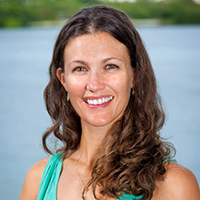
Dr. Emily R. Hall, Manager, Ocean Acidification Program and the Chemical and Physical Ecology Program
Dr. Emily Hall joined the staff at Mote Marine Laboratory in the Chemical Ecology Program in 2005 where she was most involved with research and monitoring of nutrient patterns in relation to harmful algal blooms in the west-central coast of Florida, and investigating sources of nutrients in aquatic systems. Dr. Hall currently manages the Chemical and Physical Ecology Program and the Ocean Acidification Program where she developed ocean acidification and climate change experimental systems (in the Florida Keys – CAOS and in Sarasota - OASys) to study the effects of global and local variables on coral reef ecosystems as well as on other marine organisms. Ocean acidification (OA) and climate change are occurring due to the increased rate of anthropogenic CO2 in the atmosphere and the ocean. Understanding the effects of these global problems on marine organisms is a top priority. The implication and evidence are that increases of pCO2 along with increased temperatures (and combined with other environmental variables) will affect multiple critical biological components of marine ecosystems. Dr. Hall is also focusing her research on unique coastal and marine habitats that may be able to withstand or alleviate the effects of global changes on organisms like corals, such as within seagrass beds or offshore deep holes.

Dr. Marjorie Friedrichs, Research Professor, Virginia Institute of Marine Science
Marjy Friedrichs obtained her M.S. from the MIT-WHOI joint program and her Ph.D. from Old Dominion University and is currently a professor at the Virginia Institute of Marine Science at William & Mary. Her research focuses on quantifying the historical and future impacts of climate and land-use changes, as well as population growth, urbanization, and local management efforts, on hypoxia, acidification, and biogeochemistry in coastal and estuarine systems. She has developed the Chesapeake Bay Environmental Forecast System that provides short-term forecasts of acidification metrics, temperature, salinity and oxygen for oyster aquaculture hatchery operators and growers, as well for fishermen and charter boat captains (www.vims.edu/hypoxia). In addition she uses these models to study long-term interdecadal changes in acidification and hypoxia in the Bay, which are being caused by a combination of anthropogenic changes in nitrogen and carbon inputs to the Bay and changes in global air temperature and CO2 concentrations.
Presentations:
“Short-term forecasts of acidification metrics in the Chesapeake Bay,” Marjorie A.M. Friedrichs, Research Professor, Virginia Institute of Marine Science
“A changing climate: impacts on coastal and marine organisms,” Dr. Emily Hall, Manager, Ocean Acidification Program and the Chemical and Physical Ecology Program
“NOAA Ocean Acidification Program: Emerging Topics,” Dr. Libby Jewett, Director, NOAA Ocean Acidification Program
CAREER DEVELOPMENT
HANOVER ROOM
GRADUATE SCHOOL: BEFORE, DURING, AND AFTER
Is graduate school in your future? Have you considered a doctorate? Through a multidisciplinary panel of students, faculty and professional staff, we will discuss all things graduate school—including how to decide between master’s and doctoral degrees, application best practices, and tips for a successful graduate school experience. Furthermore, you will find out more about the ins and outs of the graduate school experience—from deciding if graduate school is right for you to making the most of an advanced degree, and everything in between.
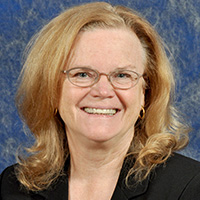
Dr. Linda C. Schaffner, Associate Dean of Academic Studies, Virginia Institute of Marine Science
Dr. Schaffner is a broadly trained marine and estuarine ecologist, who has conducted research on continental shelf and estuarine ecosystems in the U.S., Asia, and Europe. Her graduate students have gone on to successful careers in academia, government and the private sector. Dr. Schaffner provides stewardship of VIMS' broad educational mission and administrative oversight of the School of Marine Science graduate program. She is dedicated to maintaining an inclusive education environment where you recognize potential and cultivate the student, and to providing VIMS students with the education and skills they need to keep the ocean science workforce strong.
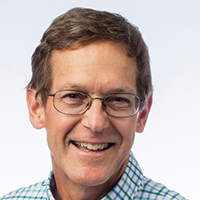
Dr. Fred C. Dobbs, Professor and Chair, Department of Ocean, Earth, & Atmospheric Sciences, Old Dominion University
Professor Fred C. Dobbs, is the Chair of the Department of Ocean, Earth & Atmospheric Sciences at Old Dominion University. He received his A.B. from Franklin and Marshall College, his M.S. in Zoology from University of Connecticut, and his Ph.D. in Oceanography from Florida State University. He held institutional post-doctoral positions at State University of New York at Stony Brook and University of Hawaii. In 1993, Dobbs joined the faculty at Old Dominion University, where his recent and ongoing research addresses several areas in aquatic microbial ecology.
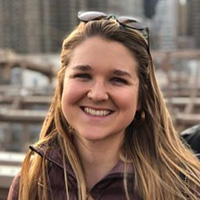
Hannah Aichelman, Boston University, Ph.D. candidate, Ecology, Behavior & Evolution
Hannah Aichelman is a former Virginia Sea Grant Graduate Research Fellow and a current NSF Graduate Research Fellow. She is a second year Ph.D. student at Boston University’s Marine Population Genomics Lab. Her research at BU explores coral resilience and responses to rapid climate change using both physiological and molecular tools. Aichelman has a B.S. in Environmental Science from the University of North Carolina at Chapel Hill and a M.Sc. in Biology from Old Dominion University.
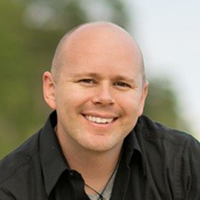
Dr. Samuel J. Lake, Fellowship and Research Program Coordinator, Virginia Sea Grant
Sam Lake is the fellowship and research program coordinator and is responsible for the administration of Virginia Sea Grant’s graduate and post-graduate fellowship programs. Sam has a Ph.D. in marine science from William & Mary, Virginia Institute of Marine Science, and BS in marine science and biology from Coastal Carolina University. His areas of expertise include the coastal systems ecology, and the development and implementation of stakeholder-focused estuarine water quality models.
CONCURRENT SESSION 3
SCIENCE COMMUNICATION
HANOVER ROOM
SCIENCE COMMUNICATION PANEL
Hear from professionals working at the intersection of the environment, science and communications in this panel. Topics covered will include panelists’ career experiences and potential career paths for students.
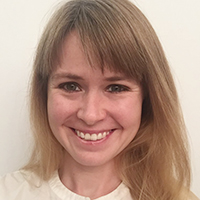
Sarah Vogelsong, Environment and Energy Reporter, Virginia Mercury
Sarah Vogelsong is an environment and energy reporter for the Virginia Mercury and has spent over a decade in journalism and academic publishing. Prior to writing for the Mercury, she covered environmental issues in Central Virginia for the Chesapeake Bay Journal, and has also written for the Progress-Index, the Caroline Progress, and multiple regional publications. In 2017, she was honored as one of Gatehouse’s Feature Writers of the Year, and she has been the recipient of numerous awards from the Virginia Press Association. She has a B.A. in English from William & Mary.
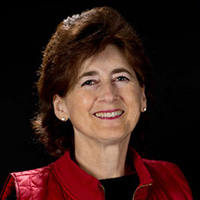
Dr. Katherine Rowan, Professor of Communication, George Mason University
Katherine E. Rowan is a professor of communication at George Mason University, Fairfax, VA. Her research concerns the public relations challenges of earning trust and explaining complexities in risk and crisis communication contexts. She teaches public relations, science communication, and crisis communication. Professor Rowan received her bachelor's degree from George Mason's English Department. After graduation, she worked for the Smithsonian Institution's Office of Public Affairs. She went on to earn her master's degree in communication and journalism from the University of Illinois, and her doctorate in the teaching of rhetoric and composition from Purdue's English Department.
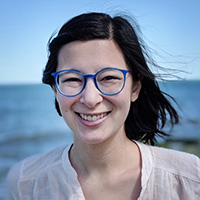
Lauren Huey, Science Communications Officer, George Mason University
Lauren Huey is a science communications officer at the Institute for Biohealth Innovation. She especially enjoys making illustrations, posters, advertisements, infographics, and whatever other creative endeavors pop up, such as scientific coloring books and logos. During her time at the Virginia Institute of Marine Science, she had mentors who encouraged her artistic tendencies. She completed the program in 2018 with an M.S. in marine science and a passion for visual, written, and verbal science communication. Her graduate studies on oyster health were a natural progression from her B.S. in Biological Oceanography from Rutgers University, though her entry into the biohealth realm came as a pleasant and unexpected opportunity. Health topics that interest Lauren the most are parasitology, host-pathogen coevolution, and virulence evolution.
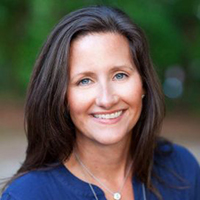
Paula Jasinski, President, Green Fin Studio
Paula Jasinski has developed award-winning cultural and natural history tourism programs, spearheaded highly effective social media and marketing plans, and brought broad spectrum groups to consensus around difficult environmental issues. When this multi-faceted communications pro isn’t working, she’s volunteering with numerous community groups and Boards, hiking, or planning her next adventurous get-away.
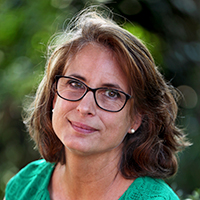
Dr. Julia Hathaway, Post-Doctoral Communications Research Associate, Virginia Sea Grant
Dr. Hathaway is a joint-funded Virginia Sea Grant/Alan Alda Science Communication Center post-doctoral researcher. Before joining Virginia Sea Grant she served as personal staff to Representative Harry Johnston and Senator Bob Graham, as a Congressional liaison for the U.S. Fish and Wildlife Service, and as a lobbyist for the Ocean Conservancy. She also worked for the House Committee on Natural Resources. Prior to pursuing her doctorate, Hathaway directed environmental justice campaigns for the Sierra Club. She earned her Ph.D. at George Mason University, a Master of Environmental Management from Yale University, and a B.A. in Communication from George Washington University.
SCIENCE POLICY
SPOTSYLVANIA ROOM
COMMUNITY ENGAGEMENT FOR RESILIENCE RESEARCHERS
Government agencies, community groups, advocates, and academics each value scientific information differently and have unique needs for technical expertise. In many cases, the science itself is at the center of the controversy, leaving researchers in an uncomfortable position. This session is an introduction to foundations of community engagement, including the role of science and researchers, the spectrum of participation, power dynamics, relationship management, and program structure for public issues. Learn from experienced practitioners about the challenges, pitfalls, and successes of working directly with community partners.
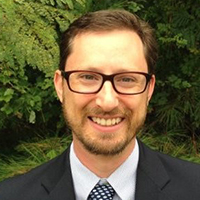
Dr. Jonah Fogel, Program Manager, Environmental Resilience Institute, University of Virginia
Dr. Fogel handles a variety of activities for the Environmental Resilience Institute including funding opportunity identification, communications, research team building, interaction with funding agencies, and institutional research administration and leadership. He provides support to the university-wide ERI Graduate Research Forum, and coordinates outreach activities and training. He works closely with ERI’s directors, and ensures the ERI steering committee’s involvement in governance decisions of the Institute. Dr. Fogel holds a Ph.D. in Natural Resources with a policy minor, a Master’s of Landscape Architecture, and a B.S. in Hydrogeology. He’s taught at a graduate level and has more than a decade of experience in community-based education and development on topics of public administration and land use planning.
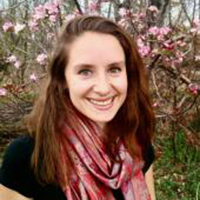
Sierra Gladfelter, Program Manager, Institute for Engagement & Negotiation at the University of Virginia
Sierra Gladfelter joined the Institute for Engagement & Negotiation at the University of Virginia in March of 2019 as a Program Manager for The Resilience Adaptation Feasibility Tool. Prior to this, she spent five years doing applied research on international resilience initiatives and their capacity to address the impacts of climate change on vulnerable communities of Nepal, Zambia, and India as the recipient of a National Science Foundation Graduate Research Fellowship and a Fulbright Fellowship. Sierra holds a M.A. in Geography and a Certificate in Development Studies from the University of Colorado Boulder and a B.A. in Anthropology from Temple University.
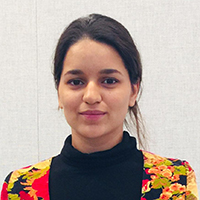
Pranjal Sharma, Graduate Student, University of Virginia Urban and Environmental Planning
Pranjal is a second-year graduate student in Urban and Environmental Planning, and is pursuing a certificate in Urban Design as well. She feels responsible to contribute to creating meaningful and inclusive spaces. In light of urban problems, she position herself as a critical thinker who can use the multi-dimensional process of planning and creating a socially equitable environment with skills like mediation and facilitation. Currently, she is working on a project called RAFT (Resilient Adaptation Feasibility Tool) for the Eastern shore in which she is responsible for creating GIS maps that would help the communities to be resilient in times of coastal inundation, hurricanes and storm surge.
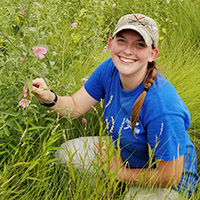
Victoria Long, Ph.D. Candidate, University of Virginia Department of Environmental Sciences
Victoria received a BS in Environmental Sciences from the University of Virginia in 2015. A native of the Eastern Shore of Virginia, Victoria's research focuses on the impacts of sea level rise, the salinization of farmland and the potential solutions that may be found in coastal wetlands. As a 2017 Virginia Sea Grant Graduate Research Fellow, Victoria worked with local farmers on the Eastern Shore to plant an experimental buffer crop that has the potential to sequester carbon, reduce nutrient runoff, and promote the inland migration of coastal wetlands. Victoria received the University of Virginia's 2019 National Geographic On-Campus Scholarship in the category of Environmental Resilience for her research on the Eastern Shore of Virginia.
SCIENCE POLICY
CHESTERFIELD ROOM
SCIENCE POLICY PANEL (this panel repeats in session 4)
While science remains critical to informed decision-making, the credibility and legitimacy of science has been challenged by today’s political landscape. This panel will feature experienced professionals discussing the skills needed to navigate the confluence of science and policy. Hear about different career paths in science policy and the different ways science is incorporated in local, regional, and national policy.
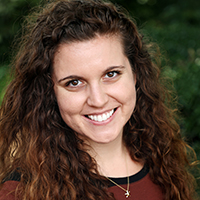
Taylor Goelz, 2020 John A. Knauss Marine Policy Fellow
Taylor Goelz is a current Knauss Fellow pursuing a science-policy career in Washington, D.C. During her graduate career, she focused on governance and management issues within the Maryland oyster fishery, explored policy options related to the National Flood Insurance Program, and was a policy intern at NOAA's Chesapeake Bay office. Goelz graduated with dual Master's degrees in Marine Science and Public Policy from the Virginia Institute of Marine Science and William & Mary.
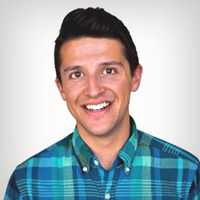
Dr. Ike Irby, Environmental Policy Advisor, Office of Senator Kamala Harris
Dr. Irby leads a legislative team that advises Senator Harris on a broad policy portfolio that includes environment, energy, climate, science, space, natural disasters, transportation, infrastructure, animal welfare, and tribal and native affairs. He earned a Ph.D. in Marine Science from William & Mary's Virginia Institute of Marine Science.
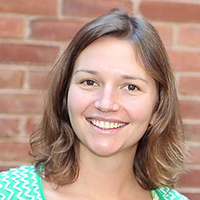
Dr. Mary-Carson Stiff, Director of Policy, Wetlands Watch
Dr. Stiff joined Wetlands Watch to help her hometown region navigate the complex issue of sea level rise. Her expertise in floodplain management, land use policy, land conservation, and local government law help to discourage development and incentivize conservation, promoting nature -based solutions to sea level rise adaptation. Dr. Stiff earned a J.D. from William & Mary Law School, and her past work experience includes the Virginia Coastal Policy Center, Virginia Outdoors Foundation, Land Trust Alliance, and Virginia Sea Grant. She serves on the boards of the Virginia Floodplain Managers Association, the Living River Restoration Trust, the Norfolk Environmental Commission, and the Chesapeake Natural Event Mitigation Advisory Committee.
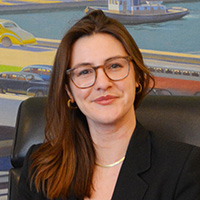
Rennie Meyers, 2019 John A. Knauss Marine Policy Fellow
Rennie Meyers recently completed a Knauss SeaGrant Marine Policy Fellowship supporting the House of Representatives Committee on Transportation and Infrastructure, where she managed the climate mitigation and adaptation, shore infrastructure, and sustainable marine transportation portfolios for the Subcommittee on Coast Guard and Maritime Transportation. Her research on coastal development policy and adaptation strategies as a TJ Watson Fellow has brought her to the Bahamas, Canary Islands, South China Sea, and South Pacific, where she uses ethnographic and mixed methods to understand tourism economies and community use in the coastal margin. She studied Environmental Studies and History at Reed College, and completed graduate studies in Marine Affairs and remote sensing at University of Rhode Island. She is a Climate Security Fellow with the Center for Climate and Security and resides in Washington, D.C.
INNOVATION, ENTREPRENEURSHIP, AND COMMERCIALIZATION
BRUNSWICK ROOM
REAL PROBLEMS, REAL SOLUTIONS, REAL IMPACTS: SCIENTISTS AS INNOVATORS AND ENTREPRENEURS
Higher education works to prepare students to deal with complex problems from a scientific approach. Have you ever considered thinking how an entrepreneur would handle the same problems? In this session, participants will learn a model of education offering transdisciplinary, project-based academic courses where students learn design thinking and work directly with client partners in government, industry, and nonprofit organizations to solve real world problems together.
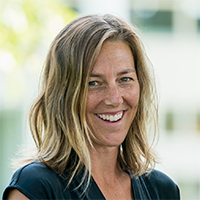
Dr. Patrice Ludwig, Assistant Professor of Biology, James Madison University
Dr. Ludwig is an Associate Professor of Biology at JMU, specializing in the second of the core courses. In addition, she teaches, develops, and researches courses in JMU's X-Labs. These transdisciplinary courses are hybrids of problem- and project-based classes. Courses taught include Medical Innovations and Biological Applications of Drones. Ludwig's scholarship also includes oyster reef restoration, understanding how networks facilitate student learning, and innovation education. Ludwig holds a doctoral degree in biology from the University of Virginia.
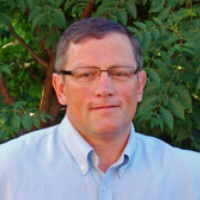
Nick Swayne, Executive Director of 4-Virginia, James Madison University
Nick Swayne is the Executive Director of 4-Virginia, the 4-VA Campus Coordinator at JMU, and faculty in Learning Technology and Leadership Education at James Madison University. In his capacity as Executive Director, he leads the collaboration of the eight partner institutions (GMU, JMU, UVA, ODU, VT, VCU, VMI, and CWM) in meeting the mission to promote collaborations that leverage the strengths of each partner university and improve the efficiency and economic impact of higher education across the Commonwealth. He is a retired Army officer with 26 years of service, the founder of the JMU X-Labs, faculty advisor for the University Innovation Fellows, the Executive Director of Virginia-DC FIRST LEGO League, co-chair of the Veteran Scholar’s Task Force, co-founder of the Harrisonburg Regional Veterans Collaborative, a doctoral candidate in the School of Strategic Leadership (ABD), a master’s in Public Administration, and is serving in his third term on the Harrisonburg City School Board.
CONCURRENT SESSION 4
SCIENCE COMMUNICATION
HANOVER ROOM
GRAPHIC DESIGN TIPS AND TRICKS FOR BETTER PRESENTATIONS
Despite the famous words of noted 1980s philosopher/songwriter Thomas Dolby, being blinded by science is an unpleasant experience, and simply not a best practice when it comes to presenting your research. So, what’s a researcher to do? You’re often tasked with fitting 10 pounds of—let’s say “oysters”—in a five-pound bag, a common problem for professional designers as well. The workshop includes pro designer tips and tricks to help simplify and organize your posters, PowerPoint slides, and webpages. Learn about converting documents to PDF, the differences between image formats like JPEG, PNG, and vector, and some beginner tips for Adobe InDesign and Photoshop.
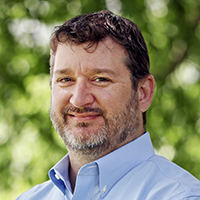
Jay Clark, Communications Center Program Manager, Virginia Sea Grant
Jay Clark has more than 25 years of experience in communications and design. He earned his B.S. in Mass Communication from Towson University and is working to complete a M.A. in Technology and Communication through the University of North Carolina at Chapel Hill. Before joining Virginia Sea Grant, he served as an art director, photographer, project manager, and communications strategist for East Carolina University where he managed photography, design, and web development teams.
CROSS-DISCIPLINARY TEAM BUILDING
SPOTSYLVANIA ROOM
DEVELOPING COMPETENCIES FOR TEAM SCIENCE
Solutions to the most pressing societal, health, and environmental problems require more than one individual conducting research and interpreting evidence. As such, there is a need to develop competencies for conducting team science. This session will draw from evidence in multiple disciplines to highlight the competencies for effectively engaging in team science. Moreover, learn particular tools to implement once returning to your own research collaborations.
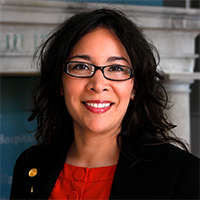
Dr. Deborah DiazGranados, Assistant Professor, VCU School of Medicine
Dr. DiazGranados is an Industrial/Organizational Psychologist, an Assistant Professor in Virginia Commonwealth University’s School of Medicine. As an Organizational Scientist she focuses on understanding the complexity of a variety of work contexts. Deborah's research focuses on understanding teams, leadership, and collaboration between diverse individuals. Deborah’s research has been published in peer-reviewed journals such as Journal of Applied Psychology, Human Factors, Academic Medicine, Journal of Interprofessional Collaboration, Small Group Research, Human Resource Management, Journal of Management, Current Directions in Psychological Science and The Joint Commission Journal on Quality and Patient Safety. Dr. DiazGranados received her B.S. degrees in Management and Psychology from the University of Houston and her M.S. and Ph.D degrees in Industrial/Organizational Psychology from the University of Central Florida in Orlando, Florida.
SCIENCE POLICY
CHESTERFIELD ROOM
SCIENCE POLICY PANEL (repeat session)
While science remains critical to informed decision-making, the credibility and legitimacy of science has been challenged by today’s political landscape. This panel will feature experienced professionals discussing the skills needed to navigate the confluence of science and policy. Hear about different career paths in science policy and the different ways science is incorporated in local, regional, and national policy.

Taylor Goelz, 2020 John A. Knauss Marine Policy Fellow
Taylor Goelz is a current Knauss Fellow pursuing a science-policy career in Washington, D.C. During her graduate career, she focused on governance and management issues within the Maryland oyster fishery, explored policy options related to the National Flood Insurance Program, and was a policy intern at NOAA's Chesapeake Bay office. Goelz graduated with dual Master's degrees in Marine Science and Public Policy from the Virginia Institute of Marine Science and William & Mary.

Dr. Ike Irby, Environmental Policy Advisor, Office of Senator Kamala Harris
Dr. Irby leads a legislative team that advises Senator Harris on a broad policy portfolio that includes environment, energy, climate, science, space, natural disasters, transportation, infrastructure, animal welfare, and tribal and native affairs. He earned a Ph.D. in Marine Science from William & Mary's Virginia Institute of Marine Science.

Dr. Mary-Carson Stiff, Director of Policy, Wetlands Watch
Dr. Stiff joined Wetlands Watch to help her hometown region navigate the complex issue of sea level rise. Her expertise in floodplain management, land use policy, land conservation, and local government law help to discourage development and incentivize conservation, promoting nature -based solutions to sea level rise adaptation. Dr. Stiff earned a J.D. from William & Mary Law School, and her past work experience includes the Virginia Coastal Policy Center, Virginia Outdoors Foundation, Land Trust Alliance, and Virginia Sea Grant. She serves on the boards of the Virginia Floodplain Managers Association, the Living River Restoration Trust, the Norfolk Environmental Commission, and the Chesapeake Natural Event Mitigation Advisory Committee.

Rennie Meyers, 2019 John A. Knauss Marine Policy Fellow
Rennie Meyers recently completed a Knauss SeaGrant Marine Policy Fellowship supporting the House of Representatives Committee on Transportation and Infrastructure, where she managed the climate mitigation and adaptation, shore infrastructure, and sustainable marine transportation portfolios for the Subcommittee on Coast Guard and Maritime Transportation. Her research on coastal development policy and adaptation strategies as a TJ Watson Fellow has brought her to the Bahamas, Canary Islands, South China Sea, and South Pacific, where she uses ethnographic and mixed methods to understand tourism economies and community use in the coastal margin. She studied Environmental Studies and History at Reed College, and completed graduate studies in Marine Affairs and remote sensing at University of Rhode Island. She is a Climate Security Fellow with the Center for Climate and Security and resides in Washington, D.C.
INNOVATION, ENTREPRENEURSHIP, AND COMMERCIALIZATION
BRUNSWICK ROOM
REAL PROBLEMS, REAL SOLUTIONS, REAL IMPACTS: SCIENTISTS AS INNOVATORS AND ENTREPRENEURS
Higher education works to prepare students to deal with complex problems from a scientific approach. Have you ever considered thinking how an entrepreneur would handle the same problems? In this session, participants will learn a model of education offering transdisciplinary, project-based academic courses where students learn design thinking and work directly with client partners in government, industry, and nonprofit organizations to solve real world problems together.

Dr. Patrice Ludwig, Assistant Professor of Biology, James Madison University
Dr. Ludwig is an Associate Professor of Biology at JMU, specializing in the second of the core courses. In addition, she teaches, develops, and researches courses in JMU's X-Labs. These transdisciplinary courses are hybrids of problem- and project-based classes. Courses taught include Medical Innovations and Biological Applications of Drones. Ludwig's scholarship also includes oyster reef restoration, understanding how networks facilitate student learning, and innovation education. Ludwig holds a doctoral degree in biology from the University of Virginia.

Nick Swayne, Executive Director of 4-Virginia, James Madison University
Nick Swayne is the Executive Director of 4-Virginia, the 4-VA Campus Coordinator at JMU, and faculty in Learning Technology and Leadership Education at James Madison University. In his capacity as Executive Director, he leads the collaboration of the eight partner institutions (GMU, JMU, UVA, ODU, VT, VCU, VMI, and CWM) in meeting the mission to promote collaborations that leverage the strengths of each partner university and improve the efficiency and economic impact of higher education across the Commonwealth. He is a retired Army officer with 26 years of service, the founder of the JMU X-Labs, faculty advisor for the University Innovation Fellows, the Executive Director of Virginia-DC FIRST LEGO League, co-chair of the Veteran Scholar’s Task Force, co-founder of the Harrisonburg Regional Veterans Collaborative, a doctoral candidate in the School of Strategic Leadership (ABD), a master’s in Public Administration, and is serving in his third term on the Harrisonburg City School Board.
GRADUATE SYMPOSIUM 2020 SPONSORS
